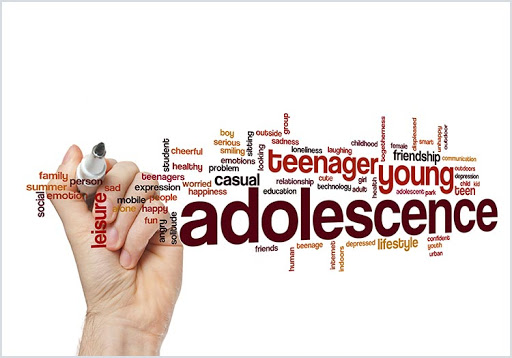The common teenage problems that teenagers face today are usually related to:
- Self-Esteem and Body Image
- Stress
- Bullying
- Depression
- Cyber Addiction
- Drinking and Smoking
- Teen Pregnancy
- Underage Sex
- Defiant Behaviors
- Peer-Pressure and Competition

Not surprisingly, all of these common teenage problems are connected to one another, in some way. However, it does not mean that having one would lead to the other.
Following are some of the important steps to build a healthy relationship with the teens and handle the concerns effectively. None of the steps/solutions works in isolation and a combination of some or all will be most effective.
Identify early: Changes in sleep patterns, eating habits, declined interest in normal and healthy activities, dropping grades in school and college and preferred isolation are all early signs of depression.
Increased demands to perform, competing with friends etc may also lead to unwanted stress. Being vigilant towards these signs at an early stage may help to block/stop further damage and guide them towards healthy ways of dealing with their concerns.
Understanding them – It is crucial that teens feel validated in their “feelings and thoughts”because what they are going through is a real part of their lives. Parents and guardians should not judge or criticize their feelings or thoughts.
Being sensitive towards teens and the fact that they are exposed to a range of emotions (puberty being one of the most important experiences) is an important step in understanding their transition.
Anger, confusion, jealousy, non-compliant attitudes, dislike towards their parents or elders, secrecy/high need for privacy etc. are few examples of emotions or feelings they have.
Defiant behaviours results from their inability to appropriately deal with the intensity of these emotions and aggravate common teenage problems
Share the Knowledge: One of the concerns that stems from curiosity and the need for independence or a sense of control can be experimenting with underage consumption of alcohol or drugs, physical intimacy or teenage pregnancy.
It is often believed that educating the child about sex will lead to them wanting to experiment. However, that is a myth.Talking to your children will enable them to be informed and will remove the “taboo” from the topic.
It’s no secret that the level of exposure teens have today, as a result of the Internet is unmatched.
Cyber addiction is the fastest growing problem amongst other common teenage problems. Parents should talk to their teens and make them conscious of cyber safety – and, how to protect themselves from Internet.
Parents may create a list of rules that clearly say when to use the internet, which sites they should visit and what safety measures they should follow and of course clearly discussing “WHY” for the same. However, a timely, healthy, factual and regular conversation about these topics will help them make informed choices.
Respect them: Theteen’s opinion or decisions will enhance their self-confidence and self esteem. Most youths’ ability to develop positive self-esteem is affected by family life and parental criticism. Making respect a mutual virtue will help in developing a stronger bond between parents and the child.
Rapport:Every parent has a different outlook towards parenting. A healthy relationship between the child and parents is most essential during the teenage years.
Communication is the key to developing a rapport, which results in the child feeling comfortable talking to their parents.
Finding the correct balance between being a friend and a parent is important as this will help develop the required rapport. For e.g. teens facing body image concerns like being too fat, too skinny, too tall or too short will benefit from a balanced approach towards parenting, which may stem from good rapport.
Trust and Acceptance: Trust is the foundation of any relationship. Spying, cross-questioning/checking with friends or doubting will hamper the bond, leading to defiant behaviours such as lying, stealing, hiding and being disrespectful.
It is important to accept your teens as they are and to build trust with them. This will help them trust and accept themselves as well as those in their immediate environment.
Communication and giving them their safe space:A clear communication channel opens up many possibilities. This not only enhances the relationship but also helps the child confide in the parents about sensitive topics like bullying, peer pressure and abuse.
Parents need to feel free to talk to their teens about certain common teenage problems like dating, sex, drugs, and alcohol. It is this inability to discuss the good and bad points that drives them to take wrong steps out of curiosity.
Effecting use of communication will foster the building of trust, respect and acceptance between the teen and the parent.
Be their Help: With the changing times seeking professional help has become a common practice and more accessible. It is important to empower the teen with information about seeking help even in the absence of the parent.
It is equally important for a parent to be aware of his or her own needs and limitations and being open to seek or accept help. Concerns that teenagers are faced with today are multifarious but interrelated in many cases.
Parents, teachers and other guardians should be well aware of the concerns that today’s teenagers are facing and be prepared to mitigate them to their best abilities.
Be their best friend and guide them without being demanding. The years between 13-19 years are usually classified as turbulent times as children are going through many growth changes, physically and mentally.
One of the best options is to approach these concerns with empathy and love.
Parents have to find innovative ways to connect with their children and build a relationship to affectively support them during this difficult phase of growing up.